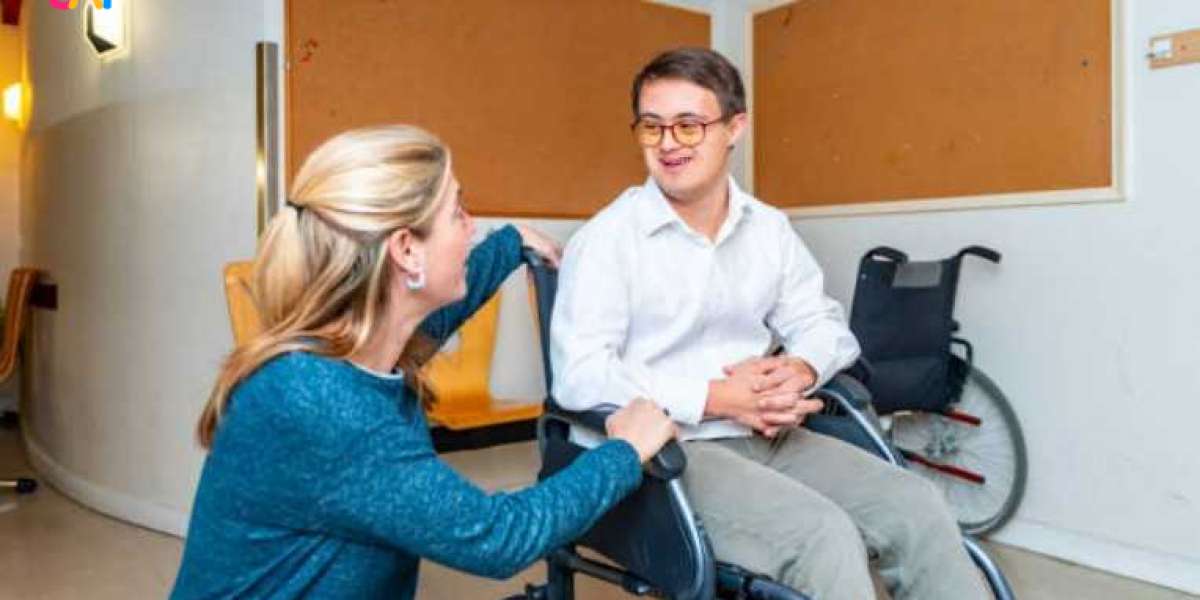For many individuals and families, day services for adults with developmental disabilities provide far more than a structured place to spend time — they offer a vital foundation for growth, independence, and social connection. High-quality day programs are designed to nurture participants’ strengths, promote inclusion, and help each person live a more empowered and meaningful life.
These programs typically follow a consistent daily schedule with customized support, skill-building activities, and opportunities to connect with peers and the wider community. Let’s explore what a typical day looks like inside a well-run day program — and why these routines are so beneficial.
Morning Arrival and Welcome
The day begins with participants arriving at the center or program site, often transported by family members, residential staff, or agency-arranged transportation. A warm, friendly environment is essential — staff greet individuals by name, offer assistance if needed, and help everyone settle into the space.
Daily check-ins are often part of the morning routine. Staff may ask how participants are feeling, review any important updates from caregivers, or briefly go over the day’s planned activities. This fosters trust, predictability, and emotional safety — all of which are essential for adults with developmental disabilities.
Individualized Goal-Setting and Planning
Many high-quality programs start the day with personal development time, where participants set small daily goals or review progress on long-term skills. Depending on the person’s cognitive abilities, this might include:
- Practicing communication or language skills.
- Working on fine motor tasks.
- Reviewing a schedule with picture cues or written lists.
- Discussing social behavior goals or emotional regulation tools.
This step ensures that every activity is purposeful and tailored to individual development plans (IDPs).
Skill-Building Activities and Educational Sessions
Mid-morning is often devoted to structured learning and hands-on skill development. These sessions vary by program but may include:
- Life skills training: cooking, cleaning, using money, reading signs.
- Literacy and numeracy practice: games, group reading, digital learning tools.
- Technology use: basic computer skills, tablet apps, adaptive devices.
Staff members often rotate small groups to ensure attention is personalized. Activities are designed to be engaging, practical, and developmentally appropriate.
Midday Break and Lunch
Around noon, participants enjoy a break and lunch. This time is more than just nourishment — it’s also a social opportunity. Staff may guide participants in:
- Practicing table manners;
- Using utensils or adaptive tools;
- Making healthy food choices;
- Conversing with peers in a relaxed setting.
Some programs incorporate group games or light physical activity during breaks, such as music, stretching, or walking outdoors.
Afternoon Community Activities or Recreation
In the afternoon, day programs often shift to interactive, recreational, or community-based activities. These are vital for promoting inclusion, well-being, and social skills.
Examples include:
- Art and crafts: painting, sculpting, card-making.
- Group music sessions: singing, rhythm instruments, movement.
- Volunteering: helping at food banks, recycling centers, or animal shelters.
- Community outings: going to parks, libraries, or local stores with support.
These experiences help adults with developmental disabilities practice decision-making, travel skills, communication, and cooperation — all within real-life environments.
Therapeutic and Wellness Services
Some programs integrate therapies into the daily schedule, such as:
- Speech therapy;
- Occupational therapy;
- Physical therapy;
- Behavioral or psychological support
Others may offer wellness-focused activities, including yoga, sensory regulation sessions, or mindfulness exercises. These help reduce stress, promote emotional balance, and support mental and physical health.
Closing Routine and Departure
As the day winds down, staff help participants review what they’ve done, celebrate small successes, and preview the next day’s schedule. This transition process builds routine and emotional readiness.
Caregivers may receive brief updates on daily achievements, challenges, or important notes. For individuals with communication barriers, visual or written “daily logs” may be used to share information with families or residential teams.
Why Consistent Routines Matter
The structure of a quality day program provides more than just order — it supports predictability, emotional regulation, and a sense of control. Adults with developmental disabilities thrive in environments where expectations are clear and routines are consistent but flexible.
Consistent routines also:
- Reduce anxiety and behavioral issues;
- Encourage learning through repetition;
- Provide frequent social opportunities in safe settings;
- Foster independence over time.
Conclusion
Effective day services for adults with developmental disabilities go beyond basic care. They offer rich, structured routines that empower individuals to learn, grow, and connect — all while being supported by trained professionals who truly understand their needs.
Families seeking meaningful daytime options should look for programs that blend personal development, community inclusion, health and wellness, and consistent daily rhythms. The right day program can be a life-changing support system — offering purpose, engagement, and dignity every single day.




